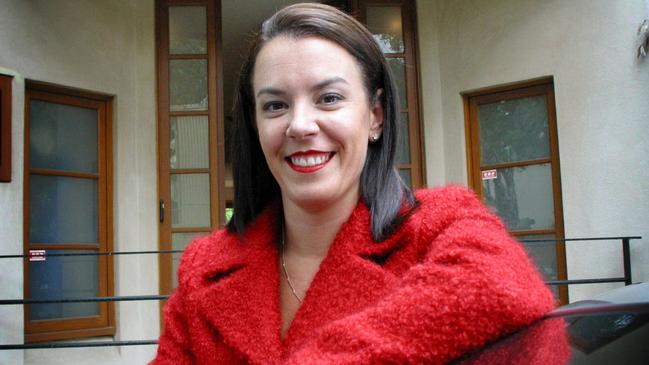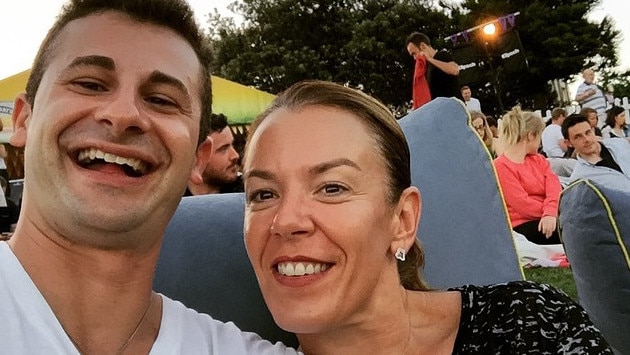Fraudster Melissa Caddick is dead, Coroner rules
A coroner says the husband of the missing fraudster intentionally kept information from police after her 2020 disappearance, while ruling on a theory about her severed foot.

Deputy State Coroner Elizabeth Ryan has confirmed missing fraudster Melissa Caddick is dead.
Handing down her findings from a long-standing coronial inquest into Ms Caddick’s disappearance, Ms Ryan said for certain she had died.
“The issues examined at the inquest could the evidence establish Ms Caddick had died, and if so was the evidence sufficient to say how where and when she did,” Ms Ryan told the hearing.
“I believe it is appropriate for me to say from the outset that Melissa Caddick is deceased.”

However, Ms Ryan is yet to say whether the evidence given is enough to determine how she died and when or where the death occurred.
Ms Caddick disappeared from Sydney’s eastern suburbs in November 2020, just hours after her Dover Heights mansion, which doubled as her business premises, was raided by the AFP and ASIC.
The corporate watchdog has accused Ms Caddick of operating a Ponzi scheme and misappropriating $24m, including from her friends and family, to fund a lavish lifestyle including holidays, designer jewellery, watches, clothing and shoes.
The case has ignited countless conspiracy theories and inspired a television series.
The inquest examined Ms Caddick’s final hours, the actions of her husband Anthony Koletti, as well as the police investigation.
Caddick’s husband ‘withheld information’
Ms Ryan has concluded Ms Caddick’s husband Anthony Koletti intentionally withheld information from police regarding the death of his wife.
Ms Ryan said Mr Koletti had “limited intellectual capacity” and provided evidence “riddled with inconsistencies.”
“The inescapable conclusion throughout the investigation and inquest is that Mr Koletti has chosen to make statements that are simply untrue,” she said
“He said he most definitely did not assist his wife in disappearing nor did he delay his report to police (that she had disappeared) in order to give her time to get somewhere else.”
Mr Koletti did not report his wife missing until he contacted Rose Bay Police Station at 11.45am on November 13 – a full 30 hours after she was last seen on November 11 when the home was raided.
“During the period of November 11 to 13, (Mr Koletti) had some awareness of Ms Caddick’s movements over the previous two days, but chose not to disclose it,” Ms Ryan concluded.

Fraudster’s personality disorder
Ms Ryan said evidence relating to Ms Caddick’s narcissistic personality and subsequent destructive qualities could be “relevant” to her death.
Throughout the inquiry, forensic psychologist Kerri Eagle was asked to review the information about Ms Caddick, and offer a report into her state of mind.
Dr Eagle found Ms Caddick had a narcissistic personality disorder, which meant she thrived off the approval of others, which could have driven her behaviour to the point of behaving dishonestly.
Because of this, she could have been at risk of suicide, Dr Eagle found.
The ASIC and AFP raid may have caused Ms Caddick severe narcissistic injury because of the “catastrophic level of shame and despair” knowing she had been caught out.
Speaking to Dr Eagle’s findings, Mr Ryan said: “imminent destruction of relationships and ruin of her lifestyle, she may have reached the conclusion that ending her life (was the only option).”
Mr Ryan found this evidence “relevant”.

Discovery of Caddick’s foot
Ms Ryan said the inquest had found it “unlikely” Ms Caddick had deliberately amputated her foot by herself or with the help of others.
Expert witnesses during the inquiry said it was unlikely a person who was not medically trained could amputate their own foot, as the pain would be extreme and significant force would be required.
Urgent medical care would be needed due to blood loss and the risk of infection, Ms Ryan said.
Experts said it could have been feasible, but only possible if the blood loss was controlled and the wound was not infected, Ms Ruan said.
Anyone who had their foot forcibly cut off would have to walk with a prosthetic. Thus, prosthetists were consulted on whether they had provided prosthetics to any woman with a severed foot around the age of 40. None had, Ms Ryan said.
“It is most unlikely it was separated from a deliberate act to sever it either by herself or with the help of others,” Ms Ryan said.
Criticism of raids ‘inappropriate’
Ms Ryan dismissed suggestions from Ms Caddick’s mother Barbara Grimley that the behaviour of ASIC and AFP officers the night of the raid was inappropriate.
Ms Grimley claimed the officers acted improperly and with limited care, which made Ms Caddick distressed and angry. She claimed they refused to give her food or drink, and withheld her from medication.
However, Mr Ryan said “there is not credible evidence to sustain the claim Ms Caddick was refused food or drink … or medication.”
“Nor is it correct to assert that no consideration of the effect of the appearance of AFP or ASCI office on (Ms Caddick’s son) Witness B was considered
“The allegations that the involved officers acted improperly … is without foundation.”
Ms Ryan could not conclude how, where or when exactly Ms Caddick died.
She offered her sympathy to Ms Caddick’s family, saying she regretted that “positive findings cannot be found as to the cause and manner of her death.”
“Her disappearance in traumatic circumstances must be ongoing,” she said.







